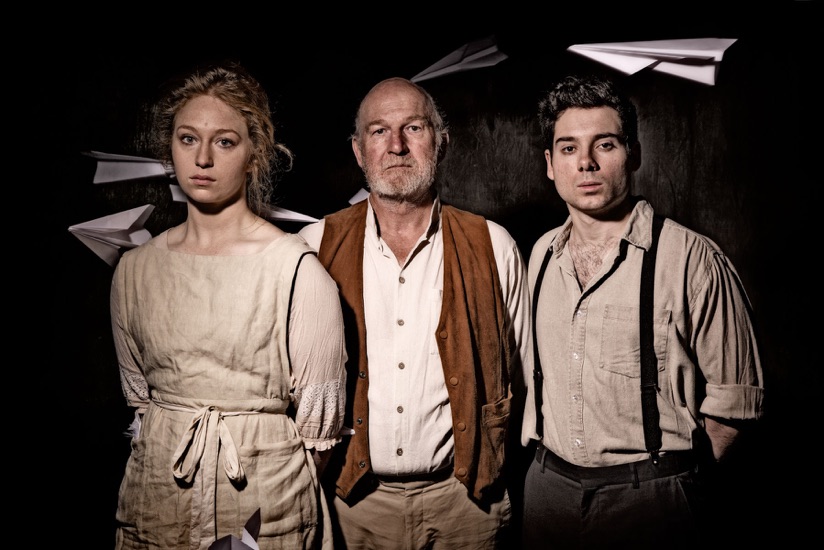It’s a proud moment for a new parent when the baby takes its first steps across the stage. It was born the moment you wrote ‘End of Play’ on your first draft. And then it gets cuddled and fed and coaxed (and chastised) in the rehearsal room. But it doesn’t stand on its own two feet until the lights come up and it greets the world.
The Splinter has been the most
painless play I’ve ever written: it emerged quickly and almost fully formed,
borne from idea to final draft by its own energy. I’ve made changes – there
have been several drafts – but minor ones. Conversely, it proved challenging in
the rehearsal room: there are two very distinct worlds at play, the lines of
which become increasingly blurred. The psychology is complex, but the text is
sparse. The visual language is at least as important as the spoken language;
the evoking of a mood, a sense of unease, is crucial. As a playwright, you
indicate how this might be realised, and you make space for it to emerge and
exist, but you are absolutely dependent on your collaborators for it to
succeed.
Perhaps
this why the evolution of The Splinter has
been such a happy one. Theatre is the most collaborative art-form of all: if
you’re not prepared to compromise, or to share, or to be influenced by others,
then you’re in the wrong business. It’s the only way to see your ideas
augmented by other people’s imaginations and skills. Beginning with my initial
pitch, I worked in close contact with dramaturge, director, puppeteer, designer
and performers. Through these conversations, workshops and script meetings I
was able to take advantage of tools not previously at my disposal. These
exchanges opened my eyes to alternative ways of communicating an idea, to going
against the grain of habit.
A
writer needs to spend a lot of time alone – thinking, doubting, exploring
sidetracks and reversing from dead ends. But it’s such a pleasure to work in a
room with other people, exploring new ways to tell a story. While there’s a
virtue in figuring out one’s technique, refining and perfecting it from one
project to the next, I am very excited by the prospect of working with artists
from different disciplines and revising the process for every show. I am a
passionate advocate of text-based theatre, but there are so many exhilarating
approaches towards creating that text.
And
then there’s the audience: the most important collaborator of all. Without an
audience, there’s no play. In the case of this play, where the audience’s
assumptions at any given moment are so critical, we were especially conscious of this collaborator.
A week
since Opening, and The Splinter is
now strutting confidently around the stage of Sydney Theatre Company’s Wharf 1. You've got till September 15 to catch it.
Here are some reviews:
And if you just can't get enough, check out this in-depth interview with Real Time Arts
Thanks to the Sydney Theatre Company for permission to publish the above, which in the main is extracted from my programme notes.


















No comments:
Post a Comment